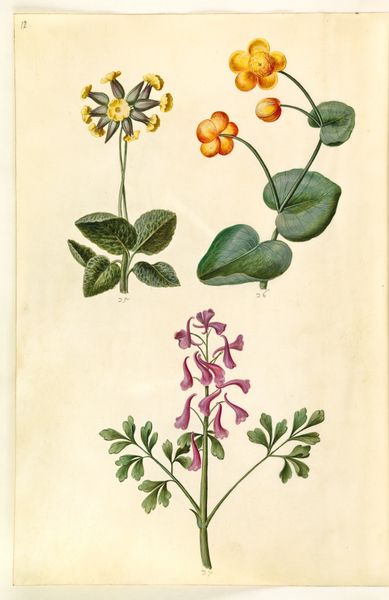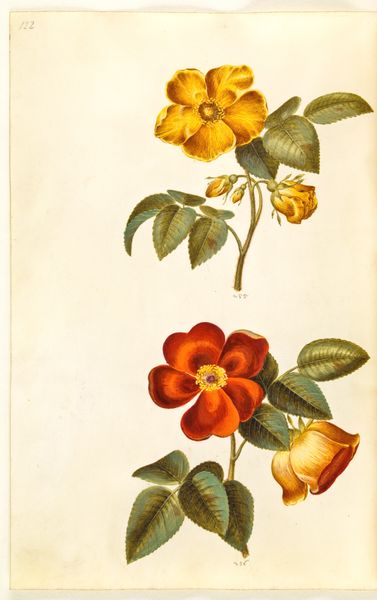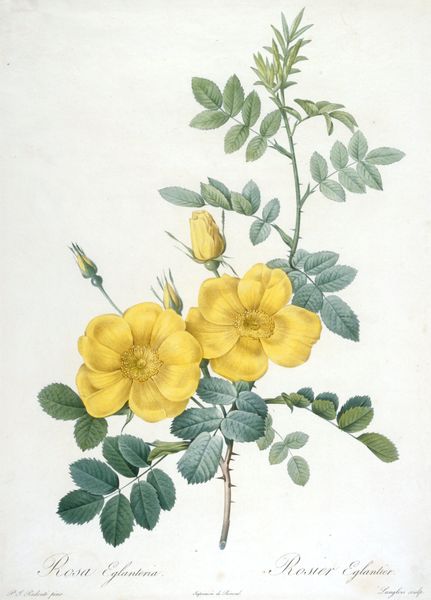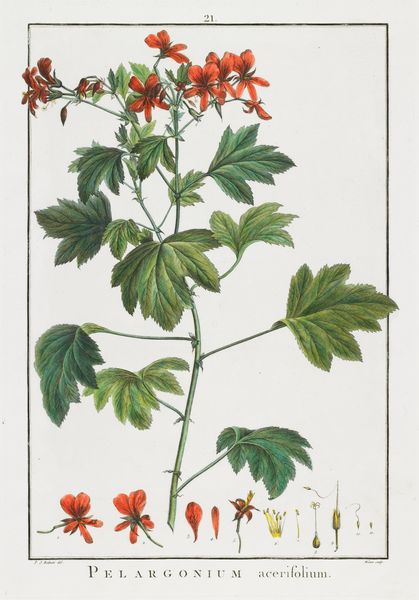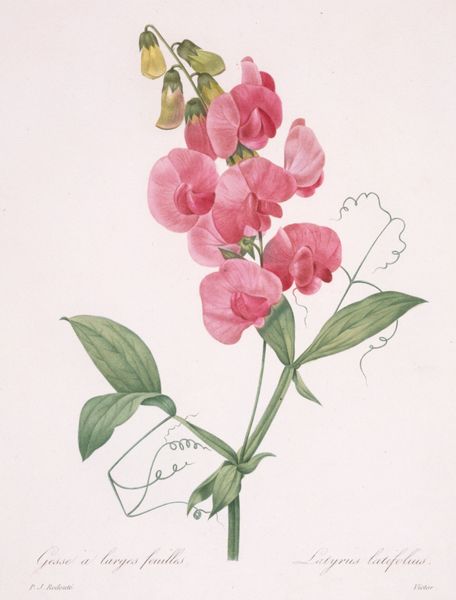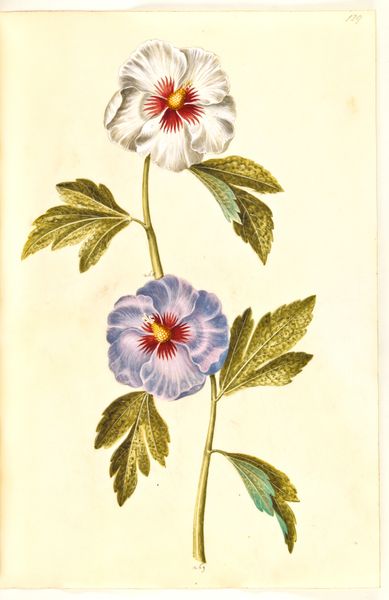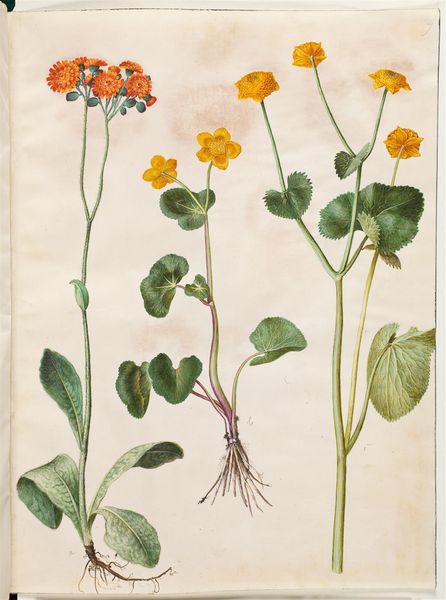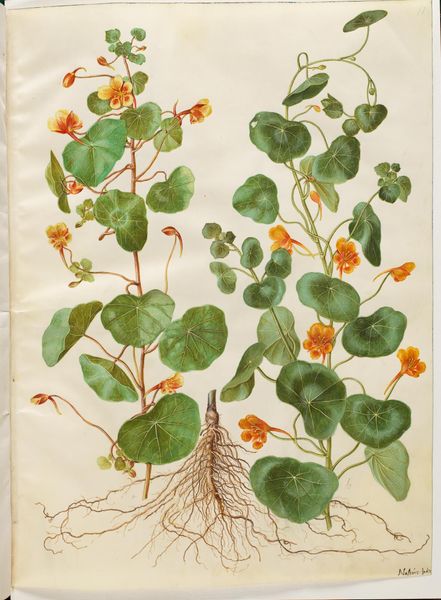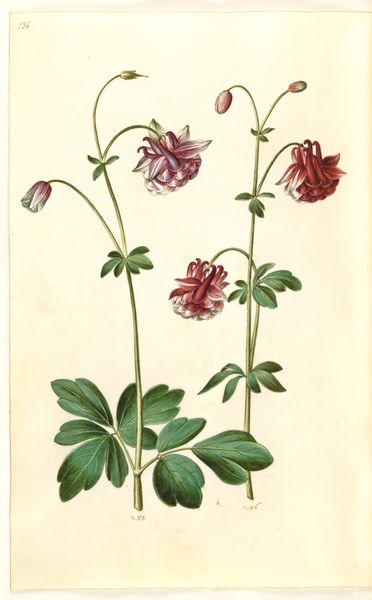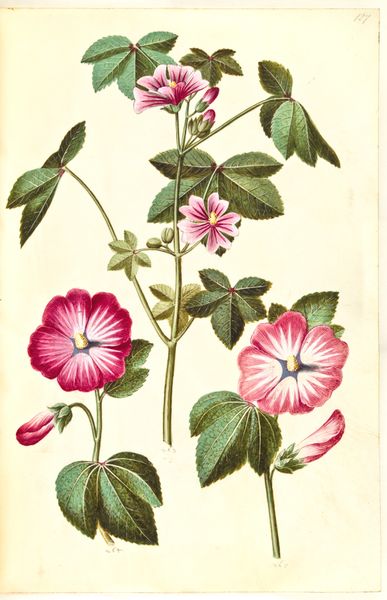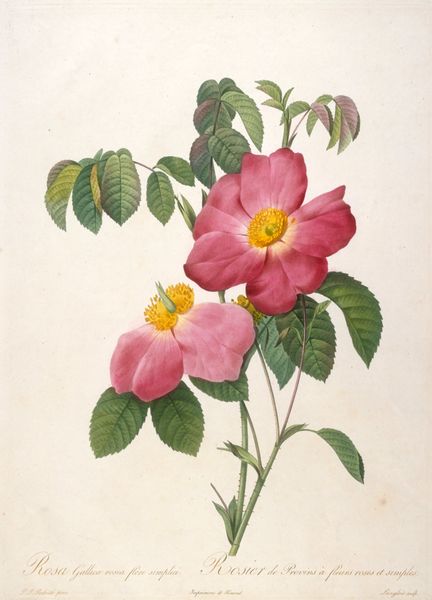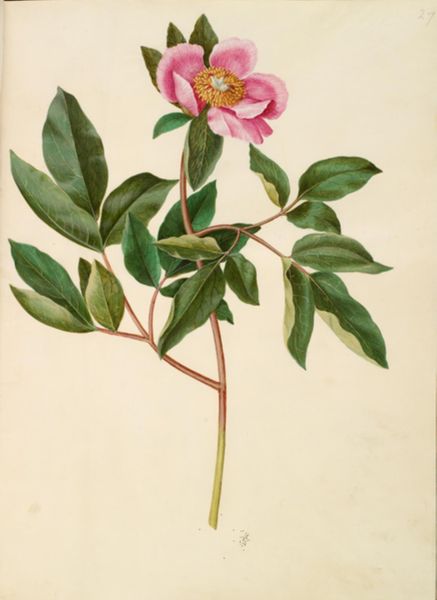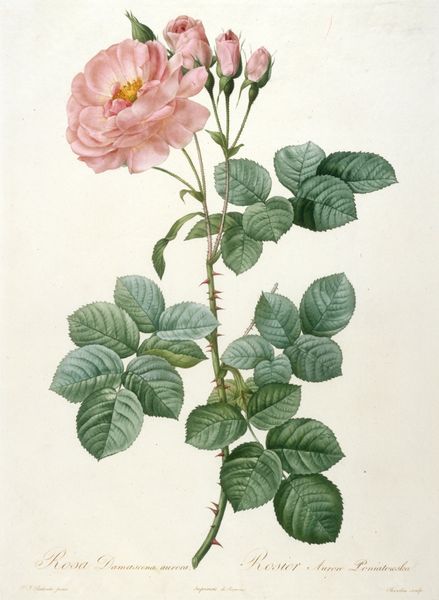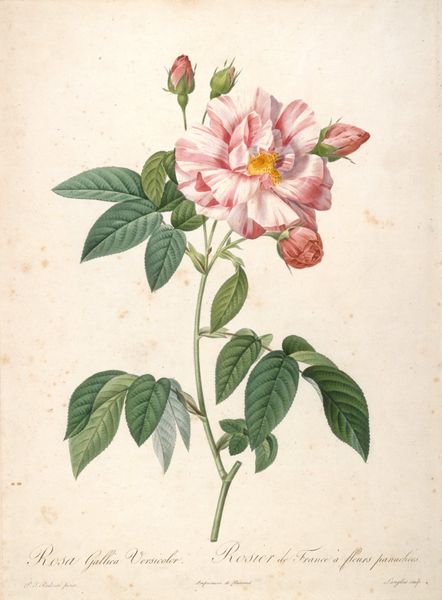
drawing, print, paper, ink
#
drawing
# print
#
paper
#
ink
#
botanical photography
#
botanical art
#
realism
Dimensions: 10 1/2 x 8 1/4 in. (26.67 x 20.96 cm) (plate)
Copyright: Public Domain
Editor: Here we have a print entitled "Tropaeolum majus (Garden Nasturtium)" made in 1827. It's a delicate botanical drawing. The red flowers are so vibrant against the soft green leaves. I’m struck by the way the artist captured such lifelike detail with ink on paper. What do you see in this piece? Curator: This image, though seemingly simple, opens up many avenues for discussion. On the surface, it's a beautiful botanical illustration, typical of the scientific studies popular in the 19th century. But beyond that, consider its place within the history of science and colonialism. Who was producing these images, and for what purpose? These were often used to document and classify the natural resources of colonized lands, facilitating exploitation. What does it mean to visually "capture" nature like this? Editor: That's a perspective I hadn’t considered. It's interesting how a beautiful image can also be a tool of power. Does the focus on realism in the style relate to that goal of control, the need to show a "truthful" version of nature? Curator: Exactly. The focus on precise detail lends the image an air of scientific objectivity. But objectivity is itself a construct. Whose perspective is being centered here? What’s left out? How does this contribute to a visual archive that has historically excluded marginalized voices and perspectives? Editor: I see now. It’s much more complex than just a pretty flower picture. The act of documentation itself has implications. I'll never look at botanical illustrations the same way again. Curator: It challenges us to think critically about the role of images in shaping our understanding of the world, and how they participate in larger systems of power.
Comments
minneapolisinstituteofart about 2 years ago
⋮
Botanical illustrators working in the fifteenth and sixteenth centuries devoted themselves to the medicinal qualities of plants and sought to render plant structure and function as precisely as they could. Later, European explorers brought specimens back from exotic locales, and artists carefully reproduced them for an audience fascinated by new discoveries. By the eighteenth and nineteenth centuries, artists had shifted their emphasis from scientific illustration to the innate beauty of the plant or flower. The Minneapolis Institute of Arts is fortunate to possess an impressive collection of more than 2,000 botanical prints and drawings.
Join the conversation
Join millions of artists and users on Artera today and experience the ultimate creative platform.
